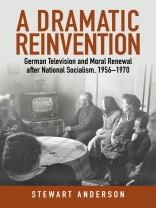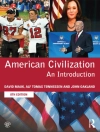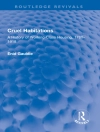Following World War II, Germany was faced not only with the practical tasks of reconstruction and denazification, but also with the longer-term mission of morally “re-civilizing” its citizens—a goal that persisted through the nation’s 1949 split. One of the most important mediums for effecting reeducation was television, whose strengths were particularly evident in the thousands of television plays that were broadcast in both Germanys in the 1950s and 1960s. This book shows how TV dramas transcended state boundaries and—notwithstanding the ideological differences between East and West—addressed shared issues and themes, helping to ease viewers into confronting uncomfortable moral topics.
Содержание
Acknowledgments
List of Abbreviations
Introduction
Chapter 1. Navigating History: Historical Consciousness, International Cooperation, and Redemption
Chapter 2. Crafting Political Role Models: The Righteous Fugitive and the Man (or Woman) of Conscience
Chapter 3. Managing Prosperity: Moderation, Empathy, and Christianity
Chapter 4. Resetting Gender Roles: Women’s Equality, Reinvented Masculinity, and the Nuclear Family
Chapter 5. Embracing Diversity: Racial Tolerance and Integration
Conclusion
Epilogue
Appendix 1: Television Programs Referenced
Appendix 2: West German Television Stations
Appendix 3: Television Licenses/Subscriptions, 1958–1970
Bibliography
Index
Об авторе
Stewart Anderson is an Assistant Professor at Brigham Young University and holds a doctorate from SUNY Binghamton. He is the co-editor of Modernization, Nation-Building, and Television History (Routledge 2014).












